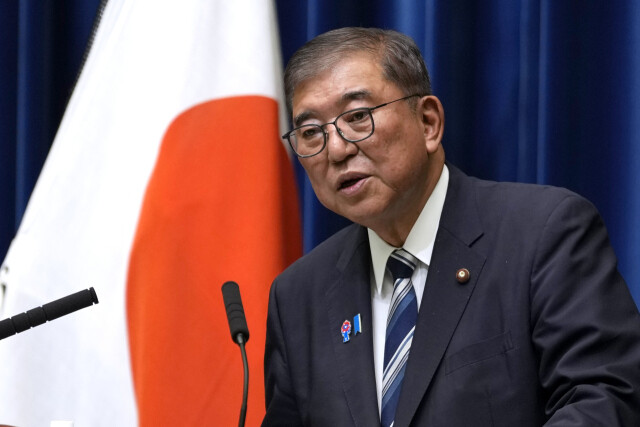
BUSAN — Japanese Prime Minister Shigeru Ishiba is set to make a poignant diplomatic gesture in Busan on Monday, September 30th, by visiting the grave of Lee Su-hyun, a Korean student who tragically lost his life in 2001 while heroically saving a Japanese man from an oncoming train. The visit precedes a crucial summit with South Korean President Lee Jae-myung, underscoring a commitment to advancing the future-oriented relationship between the two nations just weeks before Ishiba is slated to leave office.
Symbolic Stop on the Shuttle Diplomacy Route
Prime Minister Ishiba’s stop at the municipal cemetery in Busan’s Geumjeong-gu, where Lee Su-hyun is interred, is steeped in symbolism. Lee, who was studying in Japan, became an enduring symbol of bilateral goodwill after his selfless act at Tokyo's Shin-Okubo Station. This act of remembrance, reported by Kyodo News, highlights the softer, more human dimension of the renewed "shuttle diplomacy" between Seoul and Tokyo, which Ishiba's visit reciprocates following President Lee’s trip to Tokyo last month. By honoring a figure of humanitarianism and cross-cultural sacrifice, Ishiba is signaling a desire to anchor the evolving relationship on shared values and mutual respect.
The visit comes at a unique juncture for the Japanese leader. Ishiba is on the cusp of political transition; he is scheduled to step down after the Liberal Democratic Party elects its new president on October 4th, followed by a prime ministerial designation election in mid-October. His final trip to Seoul’s key port city, the first by a Japanese premier in a year since former Prime Minister Fumio Kishida’s visit, serves as a capstone on his diplomatic tenure, much like his predecessor's move shortly before retirement.
Agenda Focuses on Shared Future and Regional Stability
The high-stakes summit, scheduled to take place in Busan, is expected to pivot away from historical disputes to focus heavily on common domestic and regional challenges. According to reports, President Lee and Prime Minister Ishiba will hold extensive discussions on a range of shared burdens facing both mature economies.
Key on the agenda are the pressing social and economic issues of low birth rates, rapidly aging populations, and strategies for regional revitalization outside of the capital areas. Both nations face demographic crises that threaten their long-term economic stability and social cohesion. By addressing these shared problems, the leaders aim to forge practical, cooperative solutions that can benefit both populations. Furthermore, the leaders are expected to tackle practical matters such as disaster countermeasures and other mutual concerns, including agriculture and suicide prevention, reflecting recent preparatory talks held by vice-minister-level officials in Tokyo.
A crucial component of the dialogue will be the security landscape of East Asia. The two leaders are anticipated to deliberate on ways to further strengthen trilateral security cooperation involving South Korea, the United States, and Japan. This strengthened alliance is seen as vital for maintaining peace and stability in the face of ongoing geopolitical shifts and threats in the region.
Japanese Chief Cabinet Secretary Yoshimasa Hayashi emphasized the significance of the meeting, stating that the summit represents "an important opportunity to discuss government-to-government cooperation in the current strategic environment and the advancement of bilateral relations as we approach the 60th anniversary of the normalization of diplomatic ties."
Prime Minister Ishiba is set to arrive in Busan on the afternoon of the 30th and will conclude his visit, departing for Japan on the morning of October 1st. This brief but significant visit highlights the commitment of both governments to solidify a forward-looking partnership, even as political change looms in Tokyo.
[Copyright (c) Global Economic Times. All Rights Reserved.]




























